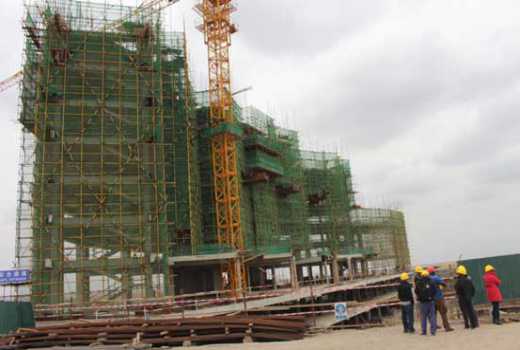×
The Standard e-Paper
Kenya’s Boldest Voice

NAIROBI, KENYA: In his inauguration speech on November 28, 2017, President Uhuru Kenyatta outlined four key pillars that would drive his economic agenda in his last term: job creation through manufacturing, food security, affordable healthcare and housing.
However, pundits are arguing that the president’s declaration is likely to put previous mega projects under Kenya’s ambitious economic blueprint Vision 2030 on the back-burners.






